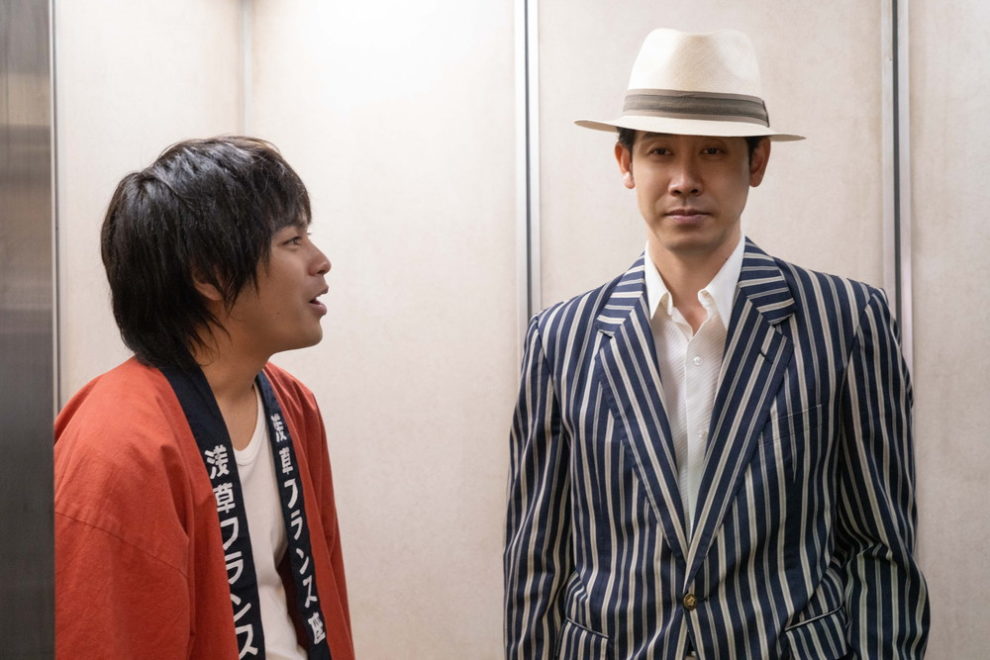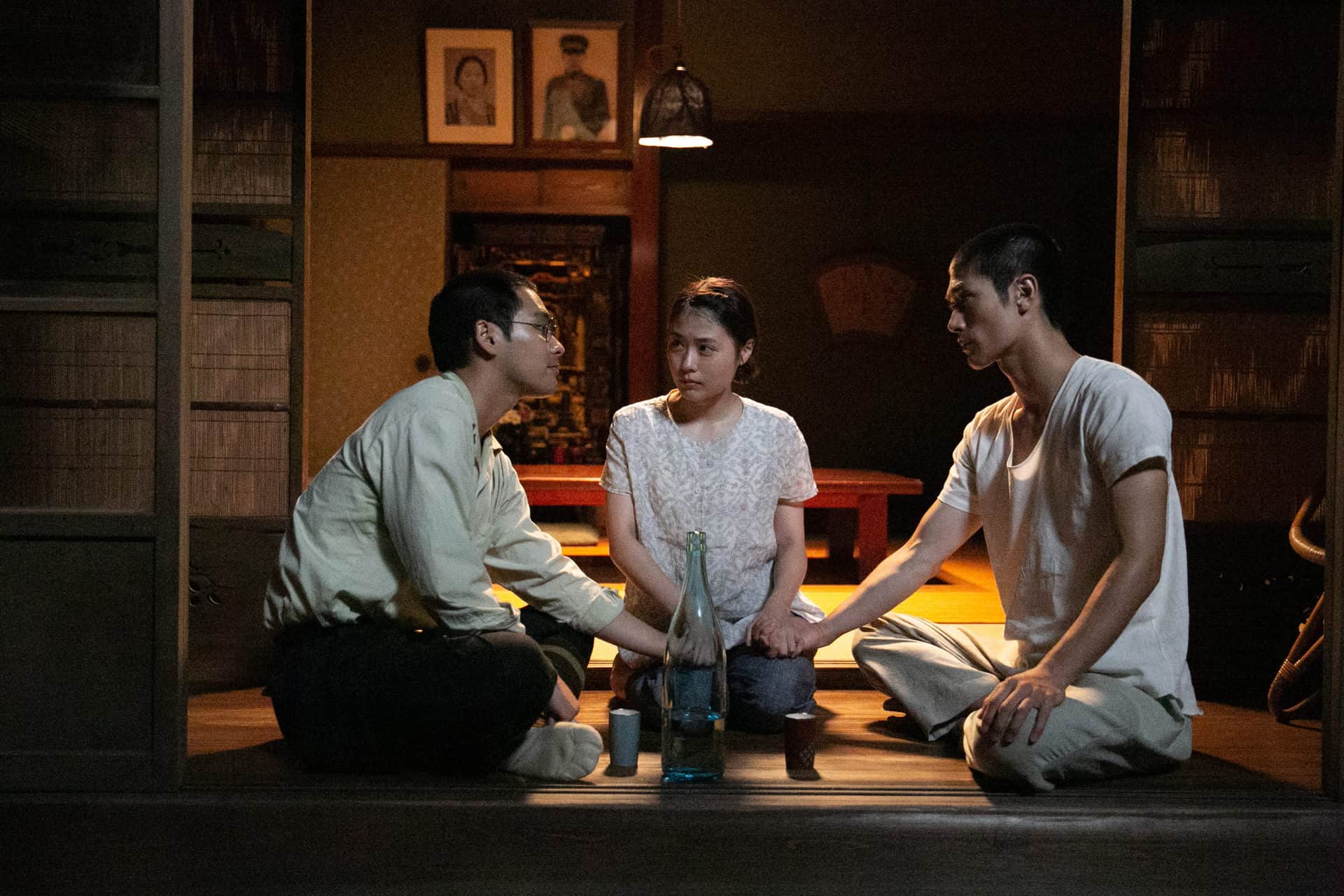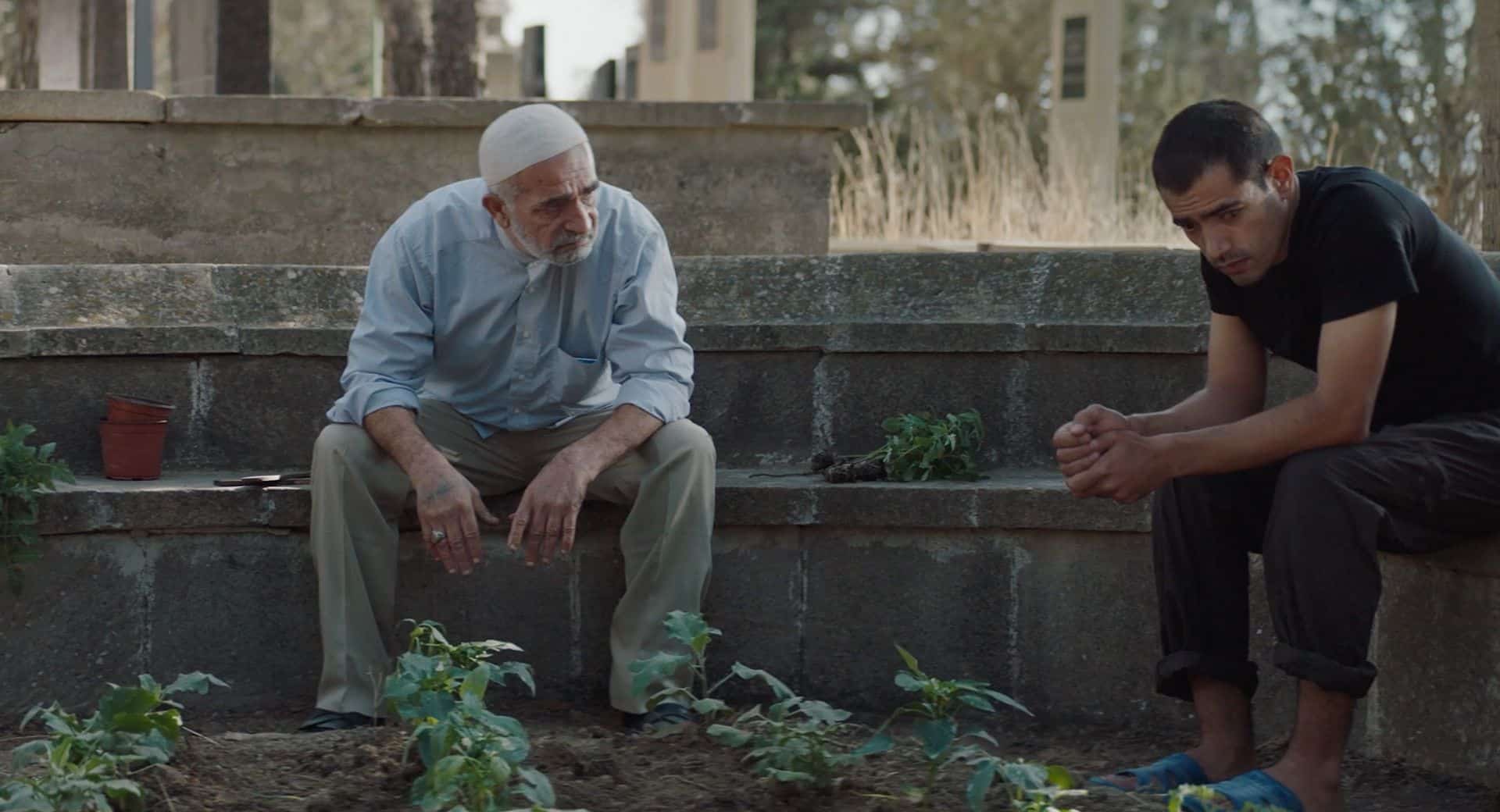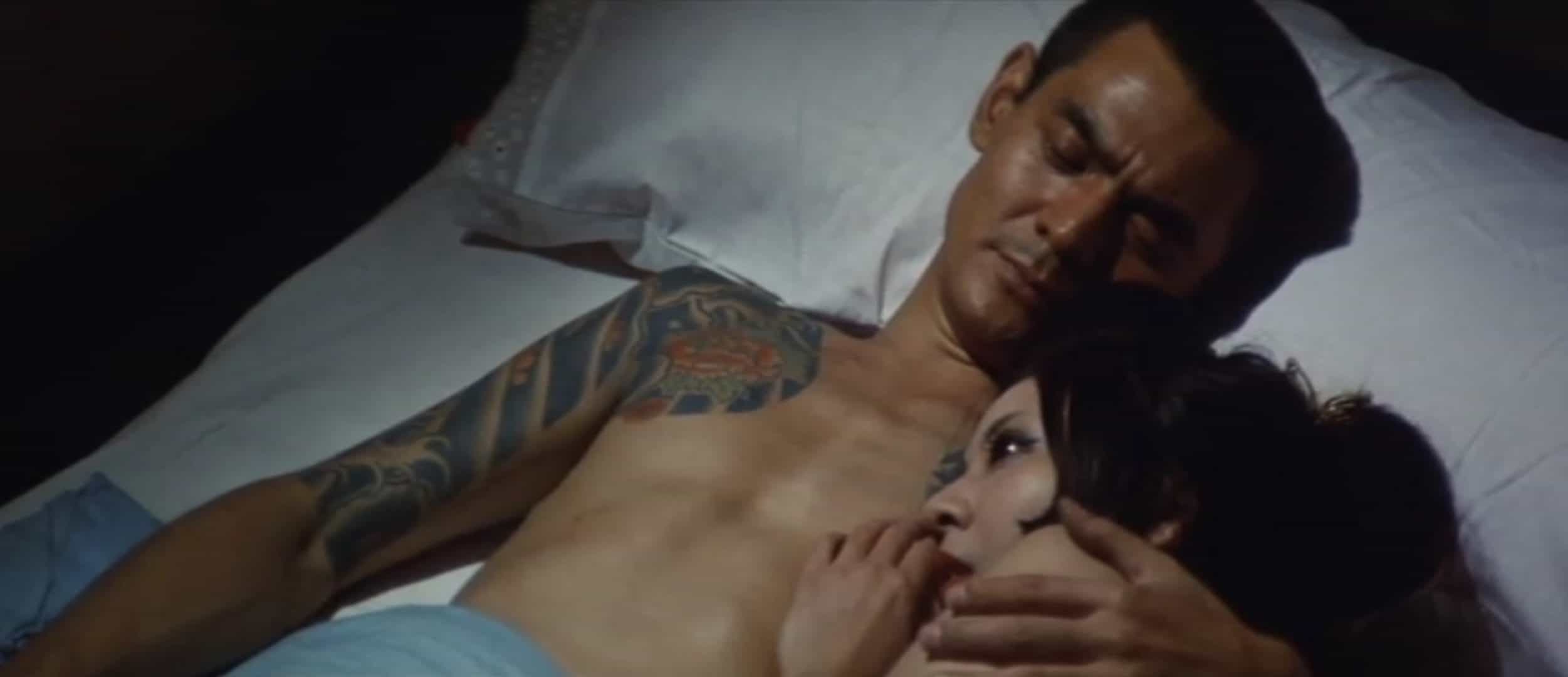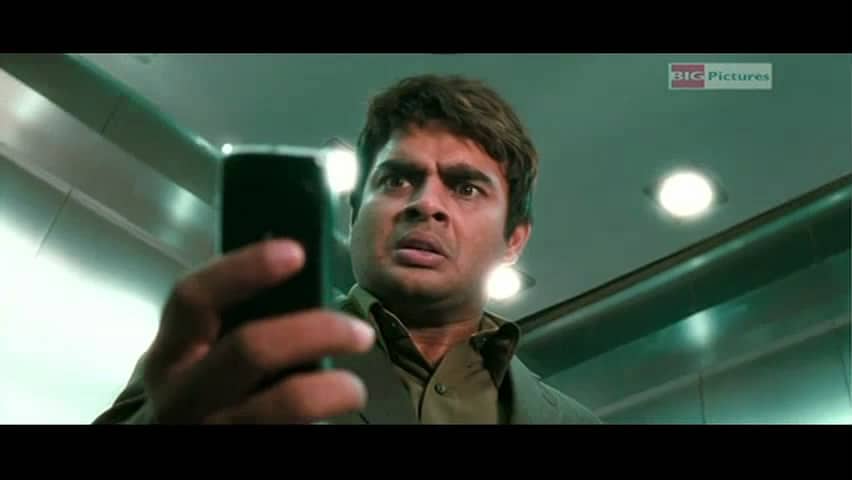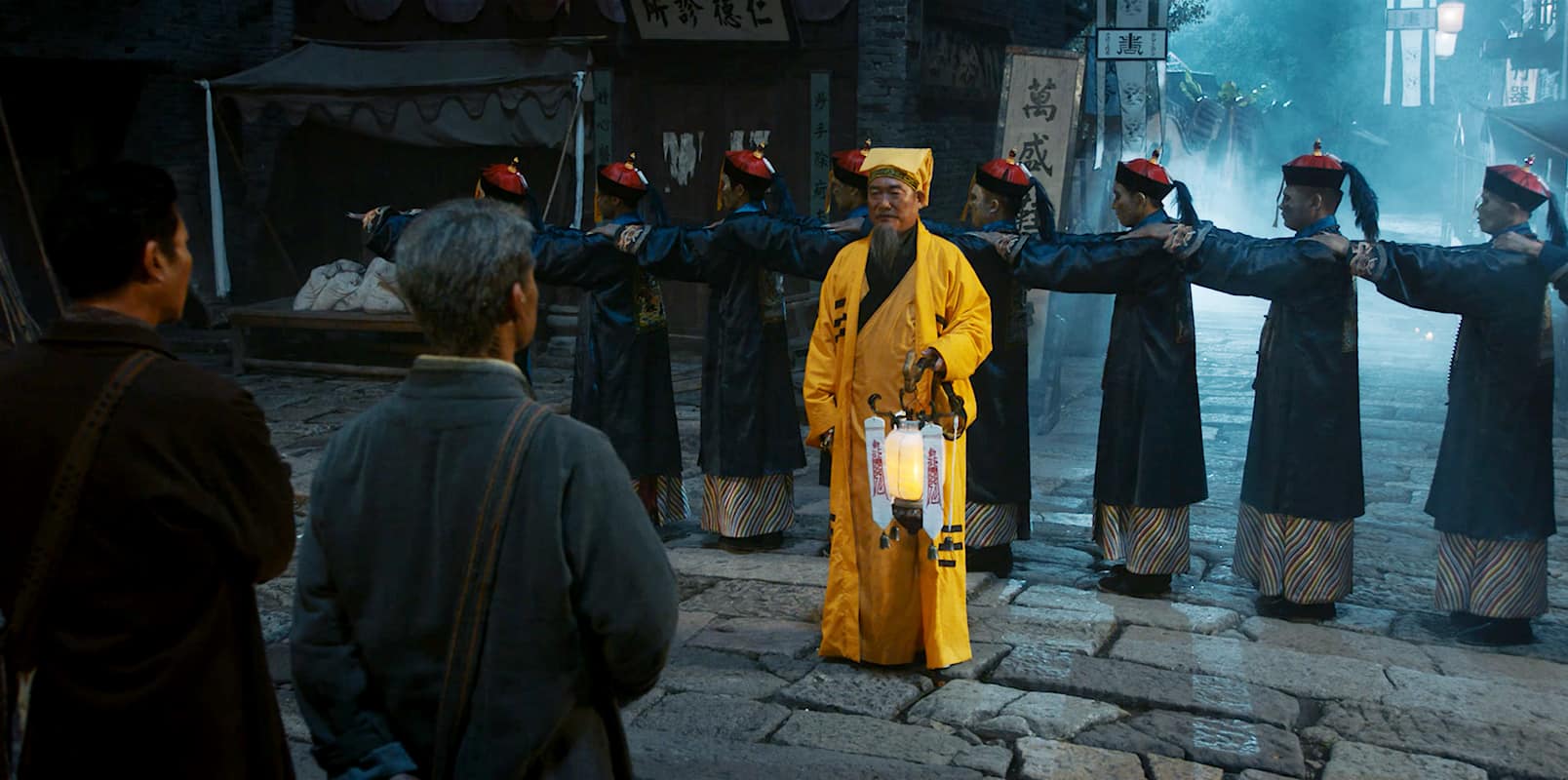Among the most anticipated films of the year, at least for fans of Takeshi Kitano and Japanese cinema in general, “Asakusa Kid” is based on the homonymous song Kitano released in 1986 and the also homonymous, autobiographical novel which was published 1988, and focuses on the beginnings of his career, much before he even considered of getting into movies.
Told in flashbacks, the main arc begins in 1965, when Take (as he was called by everybody at the time) drops out of studying to be an engineer, and joins the Asakusa France Za, a performance theater which included comic skits and strip shows. The troupe is headed by Senzaburo Fukami, aka Fukami of Asakusa, who, quite reluctantly in the beginning, becomes Take's teacher and mentor. One of his biggest influences to the then awkward Kitano was to insist on him being an entertainer at all times, even outside the stage, and that his capacity should be shown both on his character and his overall appearance. The love among the two, even if Fukami's one is rather tough, essentially forcing Kitano to do all kind of odd jobs in the theater, including taking care of the needs of the strippers, grew with time, reaching a level that could be described as the one between a father and a son. However, by the 70s, the influence of TV had already started to grow significantly, and people attended the theater less and less. Kitano, coerced by another apprentice of Fukami, Kiyoshi Kaneko, decides to leave the troupe, and form a manzai (comedy duo) touring the country. Their fame soon rose and the two became TV stars, while Fukami continued to struggle, even if his apprentices never actually forgot about him.
Hitori Gekidan directs a movie that does not focus exclusively on Kitano, since Fukami's part is at least as significant, and their relationship essentially takes center stage. This element is actually one of the best traits of the movie, since the differences of the two characters, and even more so, of their path, since Fukami's star was setting as Kitano's was rising, creates a rather appealing drama that carries the movie from beginning to end. Furthermore, it allows Gekidan to induce the movie with an intense sense of nostalgia and drama, and to contrast it with the humor that is here in equal measure, with the combination adding even more to the entertainment it offers.
The aforementioned elements work quite well also due to the acting, with the antithetical chemistry between Yuya Yagira as Kitano and Yo Oizumi as Fukami being quite good, even if, in comparison, the latter seems to be much better, with his charisma filling the screen particularly due to his clownings. Yagira's performance actually gets much better after he leaves France-za, with the manzai segments fitting his style much more intently. In that fashion, the tap dancing looks good but the twitch is somewhat excessive. His casting is also rather interesting, particularly since the kid-star of “Nobody Knows” probably envisioned a path to stardom like Kitano's but has still to achieve it.
Mugi Kadowaki as Chiharu, one of the girls of the troupe who Take comes closer to, is as captivating as always, but her role is not much explored, ending up disconnected from the rest of the film. The situation is a bit better with Honami Suzuki, who plays Mari, Fukami's partner and constant supporter, with the character being quite significant in his arc, and her delivering rather convincingly.
The plethora of performances in the movie also work well, with Gekidan avoiding making the movie a musical, even though the approach is a bit more phantasmagoric that what it probably was in reality, with Futa Takagi's rather polished, Hollywood-like cinematography being the main source of this aspect. The music, on the other hand, is excellently implemented, as is the case with the editing, with Junnosuke Hogaki combining the various elements of the narrative nicely, and through a very fitting, quite fast pace.
On the other hand, however, and particularly in the end, the repetition and the forced sentimentalism/nostalgia actually faults the movie, as much as the fact that some of the episodes and characters seem to be there just for impression, rather than adding something significant. In general, one could say that Gekidan aims at impressing at least as much as presenting a captivating story, in an element that does not always work well for the film, despite the impressive visuals and overall production elements that justify this approach.
“Asakusa Kid” is a film definitely worth watching, and not only for Kitano or Japanese cinema fans, but the afterthought it leaves is definitely that of a ‘what if', particularly regarding the what the material could be in the hands of a more experienced director. On a personal note, I think that the late Nobuhiko Obayashi would probably end up with a masterpiece.


